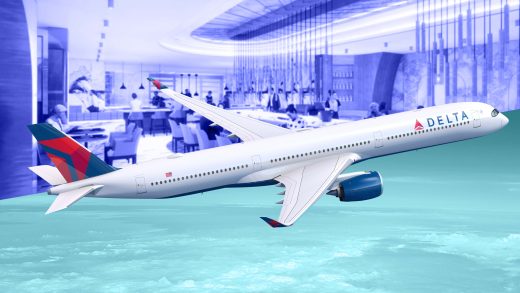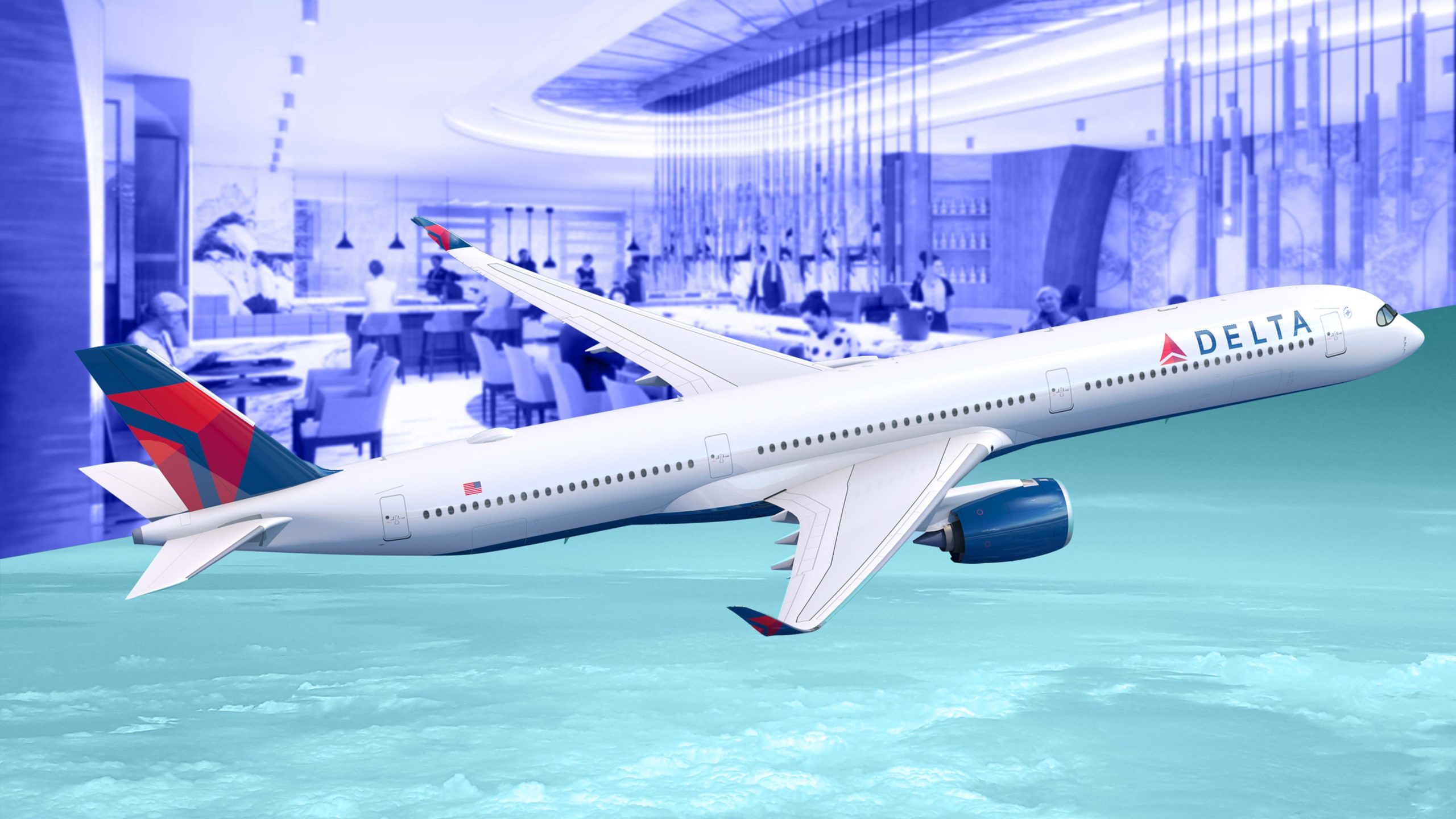Delta’s CEO says controversial Sky Lounge changes reflect the airline’s status as premium brand
Delta’s CEO says controversial Sky Lounge changes reflect the airline’s status as premium brand
‘We are victims of our success,’ says CEO Ed Bastian.
Ed Bastian, the CEO of Delta Air Lines, describes the merger of Delta and Northwest Airlines, completed in 2009, as the melding of Delta’s friendly but unreliable brand with Northwest’s efficient but unwelcoming reputation. Rather than treating seats as a commodity, the merged company chose to “distinguish around service and having a premium brand,” he says.
Some 15 years later, Delta has clearly moved upmarket, with 55% of 2023 revenue coming from “premium and non-ticket” sales, a mix of first class, business class, and ‘Comfort Plus’ seats, along with loyalty credit card, checked bag fees, and cargo business. The company has said 30% of seats this year will be in premium cabins, up two percentage points from 2019 levels.
Moving on up
Making the shift from mass market to premium is rare. Toyota did it, but via its Lexus brand. Target changed consumer perceptions through its partnerships with high-end designers, starting with a Michael Graves teakettle, but those collaborations account for a small percentage of the retailer’s annual revenue.
Bastian says Delta’s case hinged on investing in reliability. He says the company has added software that helps manage the location and condition of its fleet as well as its inventory of parts, enabling it to anticipate and address repairs faster to minimize downtime or rebookings. One metric of reliability: In 2010, after the merger with Northwest, Delta had 6,000 flight cancellations due purely to mechanical reasons. By 2019 that number fell to 60 cancellations, Bastian says.
“It took probably about five years of [improvements] before people noticed,” he says. “People would say, ‘something’s different.’ When you drive reliability, you’re giving people something they come to expect.”
Bastian says the improved reliability, in turn, freed up gate agents, flight attendants, and customer service reps to focus on elevating the customer experience rather than managing problems. (I asked Bastian about attempts by Delta flight attendants to unionize. “Delta’s a 99-year-old company that has been successful because it takes the best care of its people,” he says. “And the notion that someone else, or some other organization or structure can somehow take better care of our own people to me is antithetical.” When pressed on whether flight attendants and other employees have recourse if they have a grievance with management, which is a key union benefit, Bastian said: “Of course.”)
The rocky road to change
As part of its premium push, Delta has added perks such as free Wi-Fi for members of its SkyMiles loyalty program and better food and drink offerings at its Sky Club airport lounges.
Access to Sky Clubs became a flashpoint last year when Delta announced changes that would have required more spending to achieve elite status while also limiting visits for some in an effort to stem overcrowding in the lounges. “We are victims of our success to some degree,” he says. “Demand for our premium assets is at an all-time high, and I love that.” But the proposed changes faced backlash. “It’s hard to tell someone who’s been at a certain status for many years that what they’ve earned is no longer as valuable.”
Bastian says he personally read many of the emails and letters from unhappy customers and walked back some of the changes. Meanwhile, he says, Delta is building more lounges, including a high-end Delta One lounge to compete with American’s Flagship concept and United’s Polaris lounges. “We want to continue creating more premium experiences,” he says.
Your thoughts on heading upmarket
Has your company tried to move into a premium space, and if so, how? Are there other examples you can cite of mass market brands that have gone up market while maintaining their scale? Send your examples to me at stephaniemehta@mansueto.com.
As a reminder, Fast Company’s 2024 Brands That Matter program, which recognizes companies for communicating and demonstrating brand purpose, is almost here. Applications for this prestigious—and fun—list of the world’s leading brands open this week, and for the first time, the editors of Fast Company will recognize chief marketing officers for their leadership and contributions. Is your company a candidate? Be sure to apply.
Read more: beloved brands
165 Brands That Mattered in 2023
Why is Gen Z always talking about Target on TikTok?
Apple is No. 1 on Interbrand’s list of top global brands
Inc.’s interview with Ed Bastian
ABOUT THE AUTHOR
(18)



